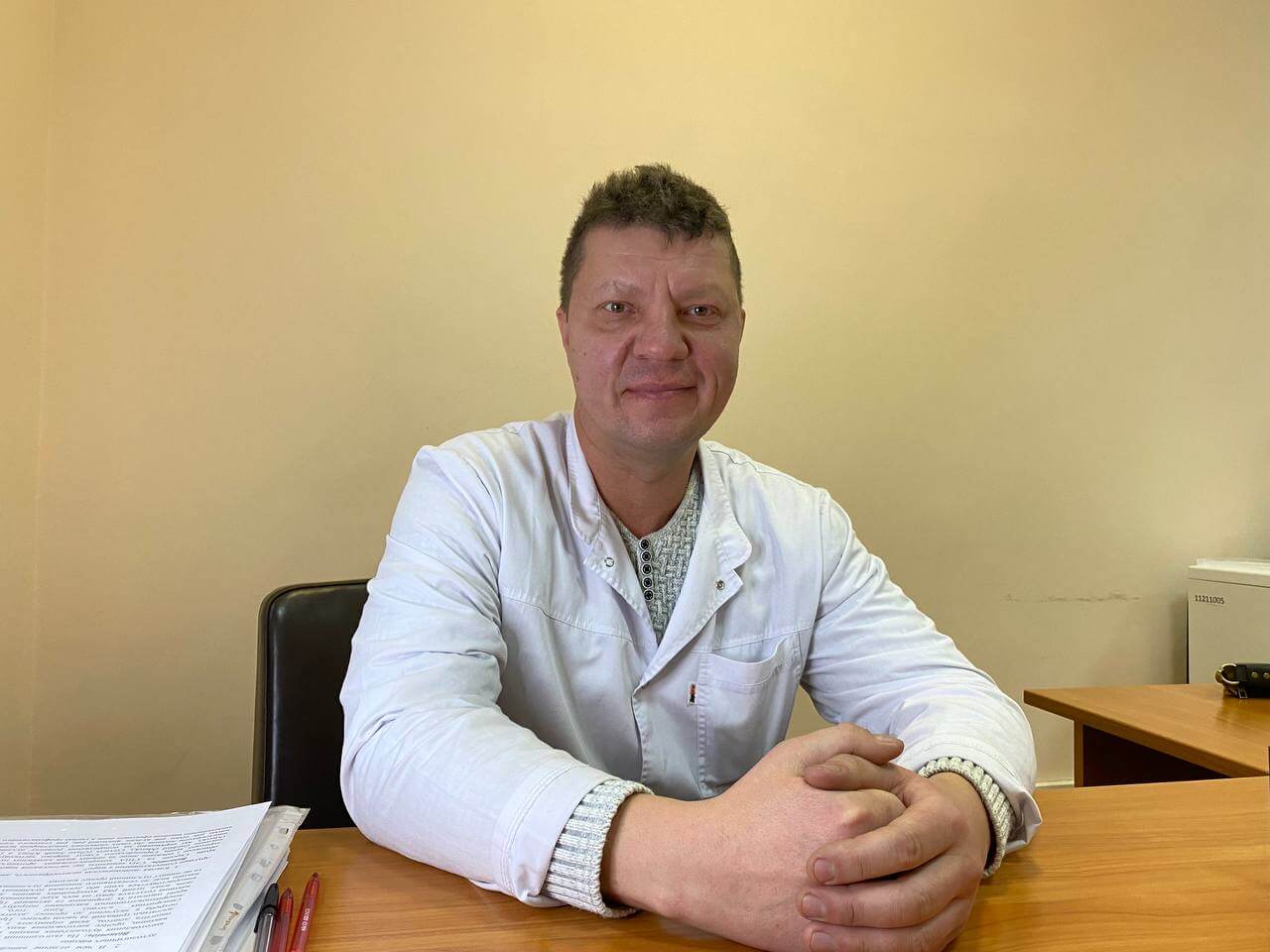Calls for Ukraine
Calls for Europe
Calls for USA

Gennadii Didenko is the head of the Oncoimmunology and Tumor Vaccine Design Laboratory. In an interview for MedTour, he talks about a tumor vaccine that helps activate the immune system to fight malignancies and improve treatment results several times over.
Introduce yourself, please.
Gennadii Didenko, head of the Laboratory of Oncoimmunology and Design of Tumor Vaccines at the Kavetsky Institute of Experimental Pathology, Oncology and Radiobiology.
What are your scientific activities at the moment?
To date, this is the development of antitumor drugs and the rehabilitation of patients who have been treated for malignancies, based on the restoration of their immunity.
What does the laboratory where you work do?
The main task of the laboratory is to develop anti-tumor vaccines and vaccines based on the bacterial lectin.
There are two types of vaccines. The first is autologous vaccines from the patient’s own tumor material. These vaccines are mainly used in stages I-II and to prevent recurrence of the disease. The second type of vaccines is based on the action of xenogeneic embryonic proteins and is aimed at restoring the patient’s immunity ability to resist a malignant tumor. We have developed our own drug, which belongs to the second type of vaccines – it is a lysosomal lectin.
When did the idea of a lectin vaccine first arise in medicine, and by whom was proposed this method of treatment?
This method was proposed by Dmitry Zatula. The first vaccine had the same principle as the modern vaccine. Now it has undergone a number of changes that increase its efficiency and safety.
When was the dendritic autovaccine developed in Ukraine and what is its mechanism of action?
Dendritic autovaccine is a vaccine that requires the patient’s tumor tissue and dendritic cells isolated from the patient’s body (lymphocytes, which help T-lymphocytes to recognize malignant cells). The tumor cells are taken by biopsy and the dendritic cells are isolated from the venous blood.
We have also developed another type of vaccine that does not require immune cell isolation. The mechanism of action of this vaccine is to mix the patient’s tumor material and the lectin protein on a centrifuge. The lectin induces a significant immune response, and when the lectin is added to the malignant cells, it makes them visible to immunity as well.
Who can benefit from the cancer vaccine and in what cases?
This vaccine is effective for breast, gastrointestinal, genitourinary, soft tissue, and brain tumors.
For which oncological diseases the cancer vaccine cannot help, and for which oncological diagnoses has it already proved its effectiveness?
It is weakly effective for melanoma. For leukemia, this vaccine can only do harm, since the activation of immunity in blood cancers is dangerous.
What factors generally influence the effectiveness of a cancer vaccine?
The most important thing is that the patient should not be immunocompromised, since all immune links must be present for the vaccine to take effect. If any immune cells are absent or nearly absent, they cannot destroy the tumor or interact with other cells to cause tumor destruction.
What types of therapy can and should be combined with the use of the cancer vaccine?
The anti-tumor vaccine is fully compatible with standard types of therapy. Moreover, it has already been proven that adding the vaccine to conventional methods improves the tolerability of chemotherapy and radiotherapy, and also reduces cytopenic phenomena (reduction of the number of blood cells to values below normal).
How is the production of such a vaccine implemented in Ukraine? Are there enough resources to provide vaccine-based cancer therapy for all willing patients?
Vaccines are made individually, since the production of a vaccine requires the biological material of a particular patient. Today, our manufacturing capabilities allow us to make 100 vaccines a month, and we are aiming for more.
In your opinion, how many domestic patients with cancer diagnoses know about the possibility of such treatment?
Information about the vaccine is in the public domain, but, unfortunately, most often patients apply when a full course of standard treatment has been completed and either the tumor is not completely removed, or there are metastatic foci, that is, in situations where the use of autologous vaccine is not indicated. And this is very disappointing, because it has been proven that the use of an anticancer vaccine during standard therapy increases the effectiveness by 2 times.
Hopefully more information about this vaccine will be disseminated among patients.
What innovations would you like to see in the laboratory to improve the cancer vaccine manufacturing process?
We are implementing improvements: we bought a fermenter and made sure that only employees with higher specialized education were involved in the production of the vaccine.
To a greater extent, I am concerned about another issue – clinical guidelines. At the moment in Ukraine there are no clinical protocols and relevant recommendations regarding the appointment of immunological therapy in oncology, but they are needed. It was correct to prescribe an immunogram to all patients, to determine the groups of patients for whom autovaccine therapy would be effective and to apply it in a timely manner.
If you are interested in using a tumor vaccine for cancer therapy, leave a request on the MedTour website. A coordinating doctor will contact you and help you with all your questions.
Please rate the work of MedTour
